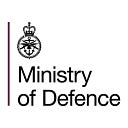A word from the Chief of the General Staff: “Alliances remain as important now as one hundred years ago at Passchendaele”
Head of the British Army, Chief of the General Staff, General Sir Nicholas Carter reflects on the Third Battle of Ypres — widely known as Passchendaele — ahead of commemorations this weekend.
As we commemorate the 100th anniversary of Passchendaele it is also a good time to reflect on what we might learn from our forefathers’ unique experiences. We might start with reflecting on what it means to fight against an enemy of a similar quality and size as we embark again on deterring our potential enemies and reassuring our European allies. This means demonstrating the ability and will to win the type of war you might have to fight — high intensity, large scale ground combat in conjunction with air and naval forces. It means relearning the implications of massed artillery fires, how to fight without air superiority, and where our opponents can deny our access from the air and the sea. All of which is very different from our recent combat experiences.
The First World War taught us much about the dynamics of coalitions and alliances through fighting in partnership with the French Army, and through integrating huge numbers of soldiers from the Dominions. We might usefully reflect on this aspect, for today our partnerships and NATO are firmly at the heart of our defence. Mutual military understanding and respect is key, as is understanding the interplay of international politics and the need to compromise to achieve strategic objectives.
We might also learn about adaptability. Rarely do we predict the future accurately. It is the speed of adaptation when war starts that determines the outcome, together with sufficient resources to sustain the fight. The significant tactical development and innovation during the First World War is often overlooked, including the introduction of the wireless and tank; rudimentary air-land integration; the first steps towards combining infantry, tanks and artillery — what we soldiers call combined arms manoeuvre; and advances in artillery observation, trench warfare and infiltration tactics. Adaptability is especially pertinent today as information and technology drive a rapid pace of change in the character of conflict.
Adaptation and innovation takes talented people. Attracting, retaining and maximising talent will always be one of our highest priorities, and unlocking talent is invariably about good leadership. The First World War is helpful in informing our understanding of the demands of leadership at all levels for today’s fight. Fourteen Victoria Crosses were won on the first day of Passchendaele which is more than on any other single day of battle in the First World War.
So, as we commemorate those who fought at Passchendaele, we might reflect that the character of conflict has changed significantly since the infantry attack began on the 31 July 1917. But, our ability to innovate, expand, prepare and adapt our Army, build alliances, and lead well, remains as important now as it was one hundred years ago in Flanders fields.
Chief of the General Staff, General Sir Nicholas Carter
